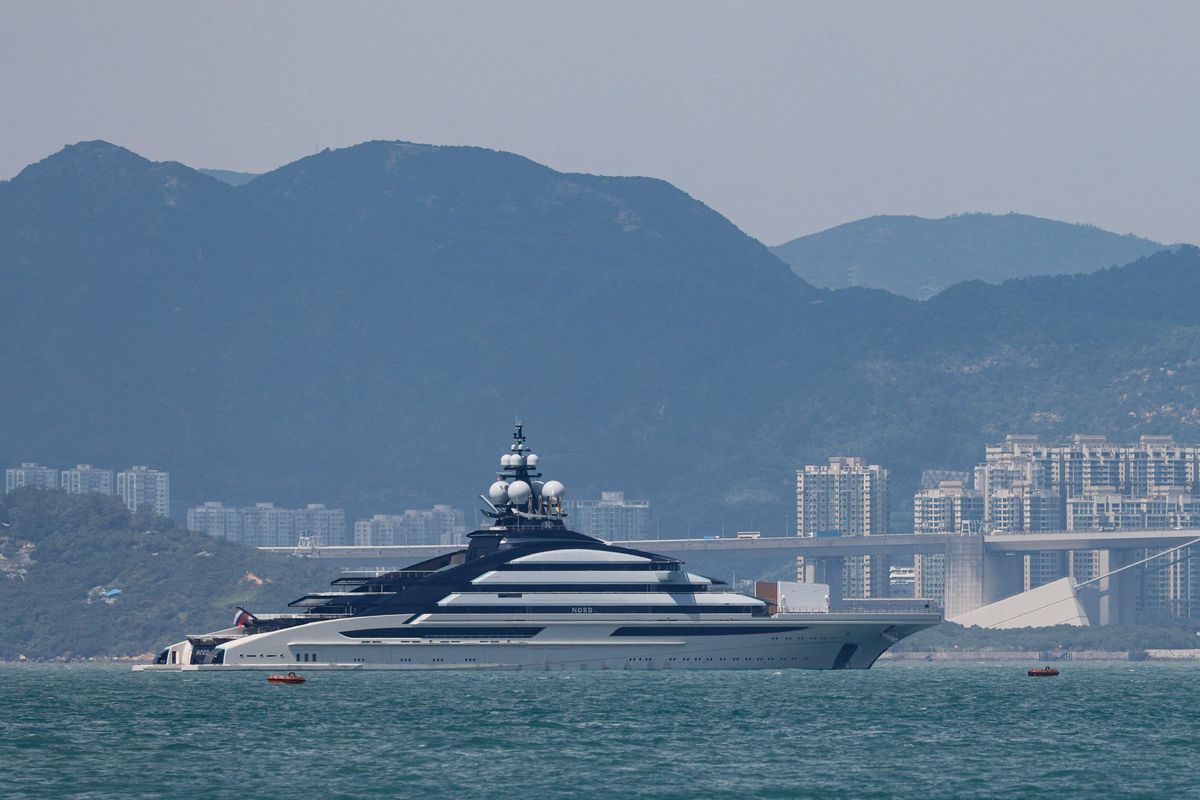US-Hong Kong relations strained over a Russian’s megayacht

A few minutes every morning is all you need.
Stay up to date on the world's Headlines and Human Stories. It's fun, it's factual, it's fluff-free.
Apart from placing sanctions on Russia for its continued invasion of Ukraine, the US has taken things a step forward by sanctioning individual people. These sanctions are placed on Russian government officials and elites close to President Putin. More specifically, these sanctions restrict luxury assets like yachts and planes. These assets have been seized as they enter different jurisdictions all over the world, so many Russians have sought out friendly places to park their stuff and avoid these measures.
One Russian oligarch, steel mogul Alexey Mordashov (who already had a yacht seized earlier this year in Italy), is one of those sanctioned people with a megayacht. And that yacht – Nord – docked in Hong Kong last Wednesday. Worth US$500 million, the vessel hasn’t been seized by Hong Kong officials as the US has requested. It’s just sitting there. The US has concerns that Hong Kong could become a safe haven for people trying to avoid sanctions. Now, US officials have warned Hong Kong that it could lose its status as a global financial hub if it doesn’t follow international laws.
Key comments:
US State Department officials said that Hong Kong’s “reputation as a financial center depends on adherence to international laws and standards … The possible use of Hong Kong as a safe haven by individuals evading sanctions from multiple jurisdictions further calls into question the transparency of the business environment.”
“[It would] raise risks considerably if Hong Kong became widely seen as a popular destination for the assets of sanctioned Russian corporations or individuals. Hong Kong-based corporations or individuals should be aware that they could later face secondary sanctions if they enter into business transactions or relationships with Russian sanction targets,” Ryan Mitchell, who teaches international law at Chinese University of Hong Kong, told the Financial Times.
“We note that certain countries may impose unilateral sanctions against certain places on the basis of their own considerations. [But the government] does not implement, nor do we have the legal authority to take action on, unilateral sanctions imposed by other jurisdictions,” said Hong Kong’s Marine Department, adding that it only enforced “sanctions imposed by the United Nations Security Council.”
“I have absolutely nothing to do with the emergence of the current geopolitical tension and I do not understand why the EU has imposed sanctions on me,” said Alexey Mordashov earlier this year, according to Russian state news agency TASS.




Comments ()